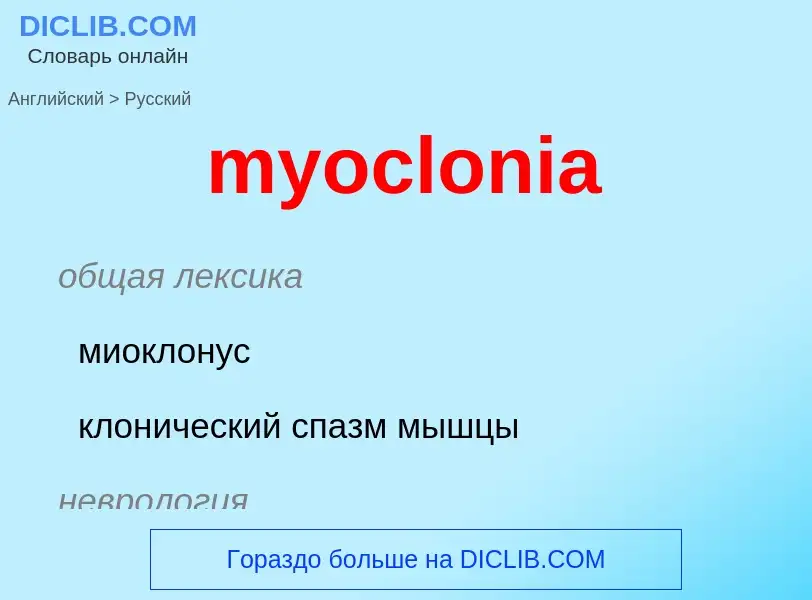Tradução e análise de palavras por inteligência artificial ChatGPT
Nesta página você pode obter uma análise detalhada de uma palavra ou frase, produzida usando a melhor tecnologia de inteligência artificial até o momento:
- como a palavra é usada
- frequência de uso
- é usado com mais frequência na fala oral ou escrita
- opções de tradução de palavras
- exemplos de uso (várias frases com tradução)
- etimologia
myoclonia - tradução para Inglês
общая лексика
миоклонус
клонический спазм мышцы
неврология
миоклония
синоним
Смотрите также
медицина
велопалатинная миоклония
медицина
миоклония позы
постуральная миоклония
Wikipédia
Epileptic spasms is an uncommon-to-rare epileptic disorder in infants, children and adults. One of the other names of the disorder, West syndrome, is in memory of the English physician, William James West (1793–1848), who first described it in an article published in The Lancet in 1841. The original case actually described his own son, James Edwin West (1840–1860). Other names for it are "generalized flexion epilepsy", "infantile epileptic encephalopathy", "infantile myoclonic encephalopathy", "jackknife convulsions", "massive myoclonia" and "Salaam spasms". The term "infantile spasms" can be used to describe the specific seizure manifestation in the syndrome, but is also used as a synonym for the syndrome itself. West syndrome in modern usage is the triad of infantile spasms, a pathognomonic EEG pattern (called hypsarrhythmia), and developmental regression – although the international definition requires only two out of these three elements.
The syndrome is age-related, generally occurring between the third and the twelfth month, generally manifesting around the fifth month. There are various causes. The syndrome is often caused by an organic brain dysfunction whose origins may be prenatal, perinatal (caused during birth) or postnatal.

